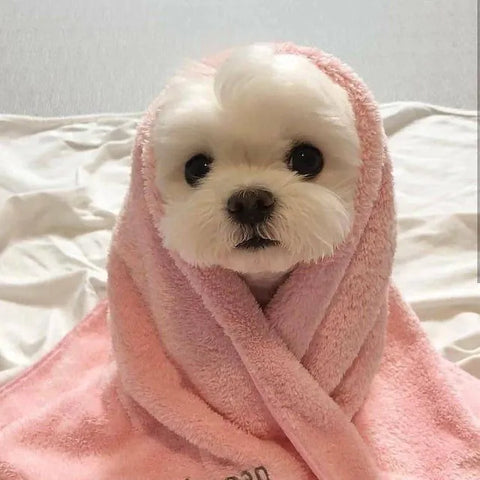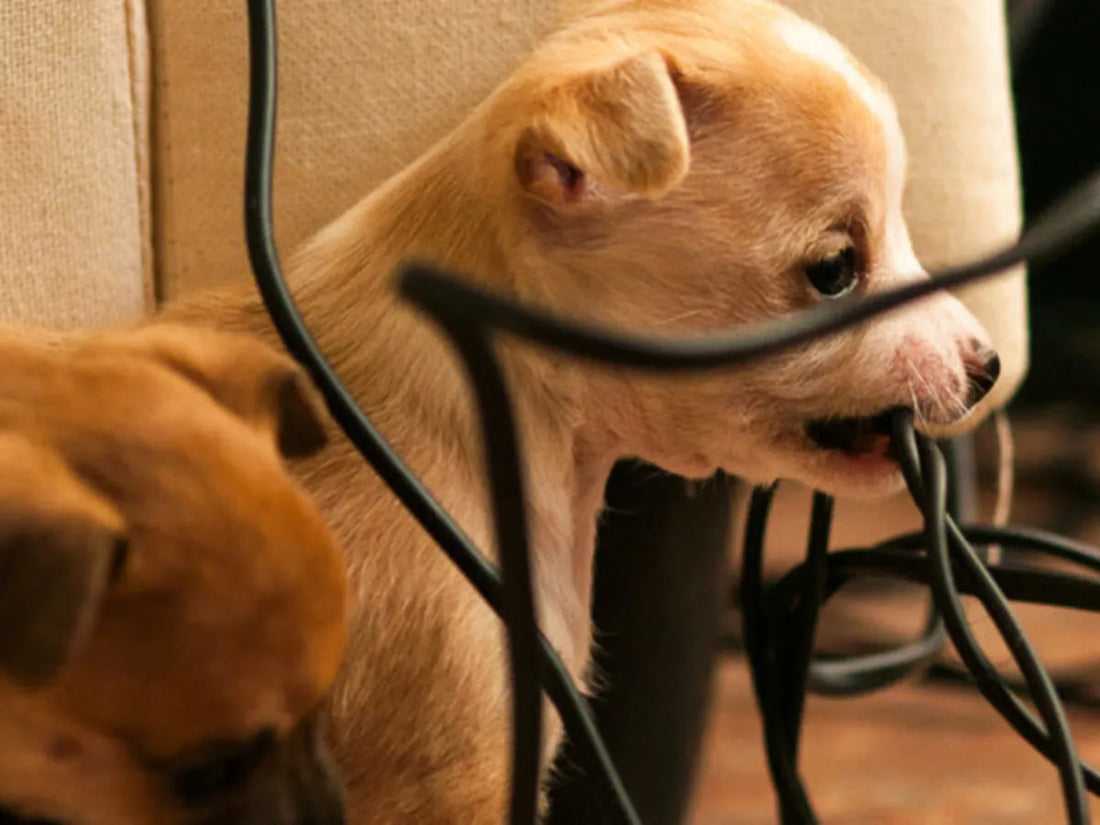Puppy-proofing 101, what is it? Consider it from the standpoint of bringing a crawling infant or toddler into your house. They desire to discover new things and get involved in a variety of activities. For a puppy, it's exactly the same!

Although it may appear tough, and you may be glancing around your house believing everything is in order, chances are you are overlooking a few things. Bringing a puppy home necessitates some preparation work, such as eliminating potentially dangerous items and circumstances, for both your peace of mind and the protection of your puppy. The following are the most crucial items to have ready in your home:
Cleaning Supplies and Medicines

Depending on where you want to keep your puppy in your home for the first few weeks, it's always a good idea to keep goods like household cleaning solutions, laundry detergent, and even medications out of reach or secured so your puppy doesn't get into them unintentionally. It's a good idea to invest in childproof locks for low cupboards in the kitchen and bathroom.
Electronics and Cables

One of the most common problems that new puppy owners face is their dog chewing on electrical wires and gadgets. Because they are low to the ground and appear to be toys, these things act as puppy magnets. Plus, if they're teething, it's the simplest thing for them to chew on to calm their gums. Cables, on the other hand, can inflict electrical burns in your puppy's mouth, and ingesting fragments might cause a clog in their intestines. Begin by covering, storing, or ensuring that wires and gadgets such as TV remotes and other electronics are firmly out of reach of your puppy.
Give Your Puppy a Space of Their Own

You should give your puppy their own place from the start so that they can associate it with their territory. Set up a playpen with their crate inside and plenty of area for them to run about. This will be their primary sleeping and playing area, and you may even designate it for feeding and pee pads if necessary. Setting up a place like this establishes boundaries, which is important for your puppy's safety and to begin training - and it's never too early to begin puppy training! At The Puppy Academy, we advise new puppy parents to limit the places in their house that their puppy has access to, and then gradually expand that area as they get older and can be trusted more. We advise new puppy parents to limit the places in their house that their puppy has access to, and then gradually expand that area as they get older and can be trusted more. You may put baby gates in doors to ensure that kids don't get into places they shouldn't be and cause mishaps while you're not looking! This is especially true for pups who have not yet been housebroken! Any free time they spend outside of their crate or playpen should be considered "motored free time," which means you must keep an eye on them.
Trash Bins

For an inquisitive puppy, food is a powerful attraction. And a garbage bin full of leftovers and other odours will be a prime target! The stomachs of puppies are extremely delicate, and most human meals are over-processed and seasoned, which can lead to significant stomach problems. In this case, the best advice is to keep the garbage and recycling containers out of reach of your dog. Don't forget about the garbage cans in the bathrooms! Puppies enjoy reaching in and grabbing soft papery items such as Kleenex. Make sure your trash cans have lids, and close the restroom door. If you want to keep your puppy in the kitchen, move the bins to another room or outside until your dog is older, better trained, and you can trust him not to dig through them. However, for those who are unable to transfer their bins, cabinet safety locks and child-proof lids are excellent options!

